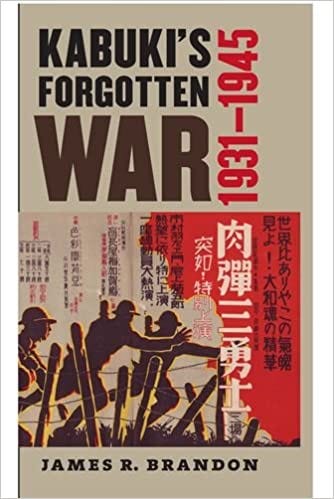Drawing extensively from Japanese sources―books, newspapers, magazines, war reports, speeches, scripts, and diaries―Brandon shows that kabuki played an important role in Japan’s Fifteen-Year Sacred War (1931-1945). Kabuki stars raised funds to buy fighter and bomber aircraft for the imperial forces and producers arranged large-scale tours for kabuki troupes to entertain soldiers stationed in Manchuria, China, and Korea. Kabuki playwrights contributed no less than 160 new plays that dramatized frontline battles or rewrote history to propagate imperial ideology.1
American censors during the occupation of Japan after World War II unsuccessfully attempted to eliminate feudal themes and foster new democratic plays in kabuki.
Contrary to popular myths, kabuki flourished under the Occupation, "banned" plays were rapidly released, the infamous "list of banned plays" was not significant, most American censors were captivated by kabuki, and credit for Occupation assistance to kabuki should not limited to one man, Faubion Bowers. 2
Sources:
Mayo, Marlene J. 1984."Civil Censorship and Media Control in Early Occupied Japan." In Americans as Proconsuls: United States Military Government in Germany and Japan, 1944–1952, ed. Robert Wolfe, 263–320. Carbondale: Southern Illinois University Press.
Okamoto Shirō. 2001. The Man Who Saved Kabuki: Faubion Bowers and Theatre Censorship in Occupied Japan, trans. and adapt. Samuel L. Leiter. Honolulu: University of Hawai'i Press.
Brandon, James R. (2009). Kabuki's Forgotten War: 1931–1945. University of Hawaii Press.
Brandon, James R. 2006. “Myth and Reality: A Story of Kabuki during American Censorship, 1945-1949.” Asian Theatre Journal 23 (1): 1–110.




